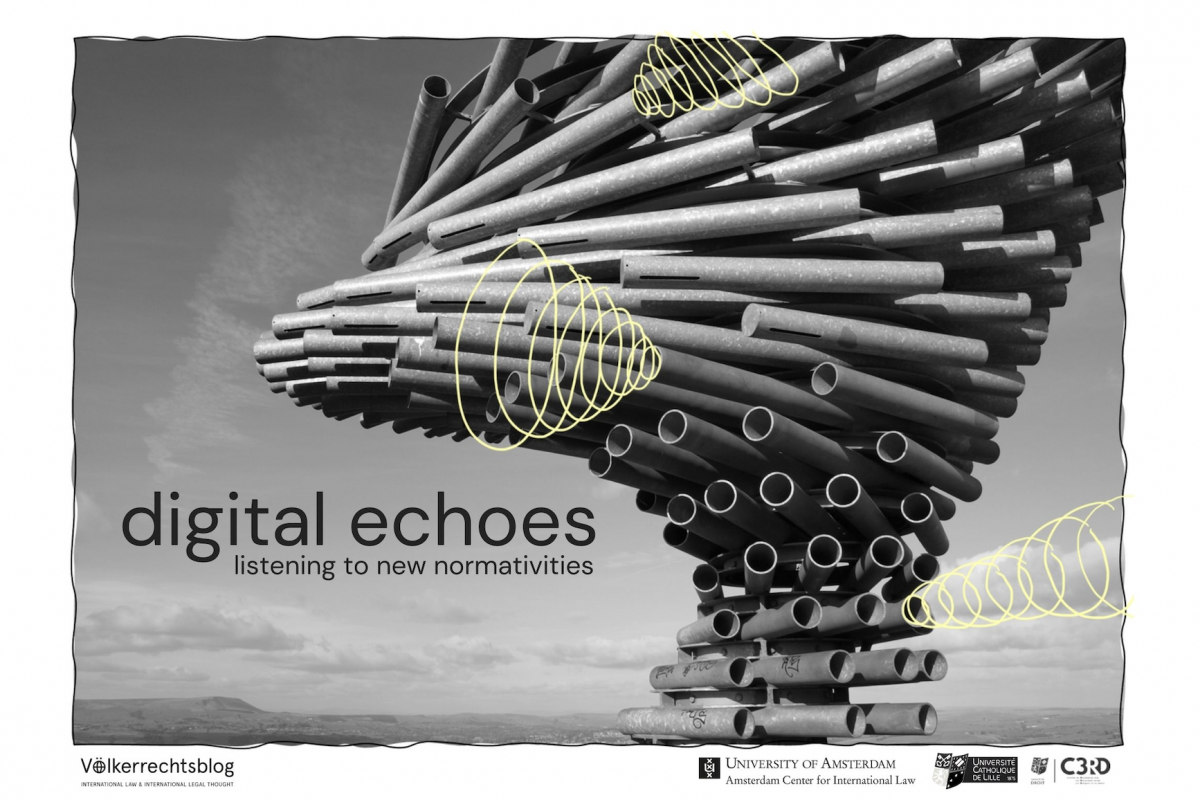1st Episode: Opening Conversation
Andrea Leiter, Delphine Dogot, Matilda Arvidsson, Fleur Johns and Dimitri Van Den Meerssche explore different ways of how they came to engage with international law and technology.
Additional reading material:
- Arvidsson, M. & Noll, G. (2023). Decision Making in Asylum Law and Machine Learning: Autoethnographic Lessons Learned on Data Wrangling and Human Discretion. Nordic Journal of International Law, 92(1), 56-92. DOI
- Arvidsson, M. (2020). The swarm that we already are: Artificially Intelligent (AI) swarming “insect drones”, targeting and international humanitarian law in a posthuman ecology. Journal of Human Rights and the Environment, 11(1) , 114–137. DOI
- Arvidsson, M. & Noll, G. (2023). Artificial Intelligence, Decision Making and International Law. Nordic Journal of International Law, 92(1), 1-8. DOI
- Austin, J. L., & Leander, A. (2021). Designing-With/In World Politics: Manifestos for an International Political Design. Political Anthropological Research on International Social Sciences (PARISS), 2(1), 83-154. DOI
- Johns F., (2017). Data Territories: Changing Architectures of Association in International Law. Netherlands Yearbook of International Law, 47, 107 – 129. DOI
- Raidotti, R., Jones, E. & Klumbyte, G. (2021). More posthuman glossary. First edition, Bloomsbury. DOI
- Johns F. (2021). Governance by Data. Annual Review of Law and Social Science, 17, 53 – 71. DOI
- Petersmann, M., Van Den Meerssche, D. (2023). On phantom publics, clusters, and collectives: be(com)ing subject in algorithmic times. AI & Society. DOI.
- Van Den Meerssche, D. (2022). Virtual Borders: International Law and the Elusive Inequalities of Algorithmic Association. European Journal of International Law, 33(1), 171–204. DOI
We are grateful to Edward Elgar Publishing for supporting our open-access efforts and permitting all of our readers and listeners to access Matilda Arvidsson’s contribution published in the Journal of Human Rights and the Environment free of cost until 26 May 2024.
Download this episode.

Dr Matilda Arvidsson is an associate professor (docent) in international law, and an assistant senior lecturer in jurisprudence. Her research interests are interdisciplinary and include AI and law, legal theory, international law, posthumanism and technology, feminism and ethnography, as well as the embodiment of law in its various forms and in inter-species relations.

Fleur Johns is a professor in the Faculty of Law & Justice at the University of New South Wales (UNSW Sydney), an Australian Research Council Future Fellow (2021-2025).

Dimitri Van Den Meerssche is a Lecturer in Law and Fellow of the Institute for Humanities and Social Sciences (IHSS) at Queen Mary University of London. His current research studies the impact of new digital technologies on global security governance, with a focus on counterterrorism and border control.

Andrea Leiter is an Assistant Professor at the Amsterdam Center for International Law working on technology enabled governance. She also co-founded the Dutch non-profit organization Sovereign Nature Initiative, working at the intersection of ecology, technology and economics.

Delphine Dogot is Associate professor of Law at Université catholique de Lille, based on the Paris-Issy Campus, and research lead in Digital and Emerging Technology at C3RD, Research Centre on Law & Risk. She is the founding Director of LeStudio, a collaborative and creative digital/law lab.
